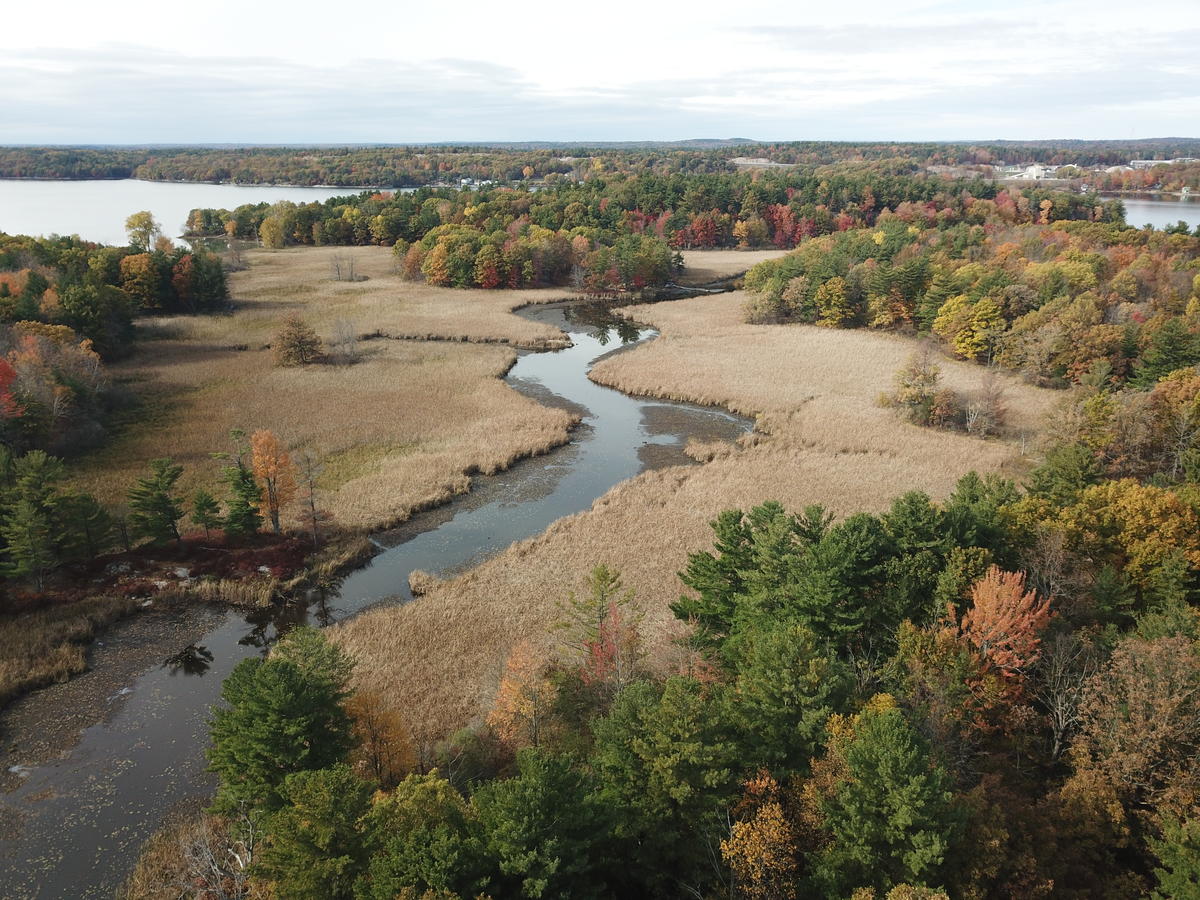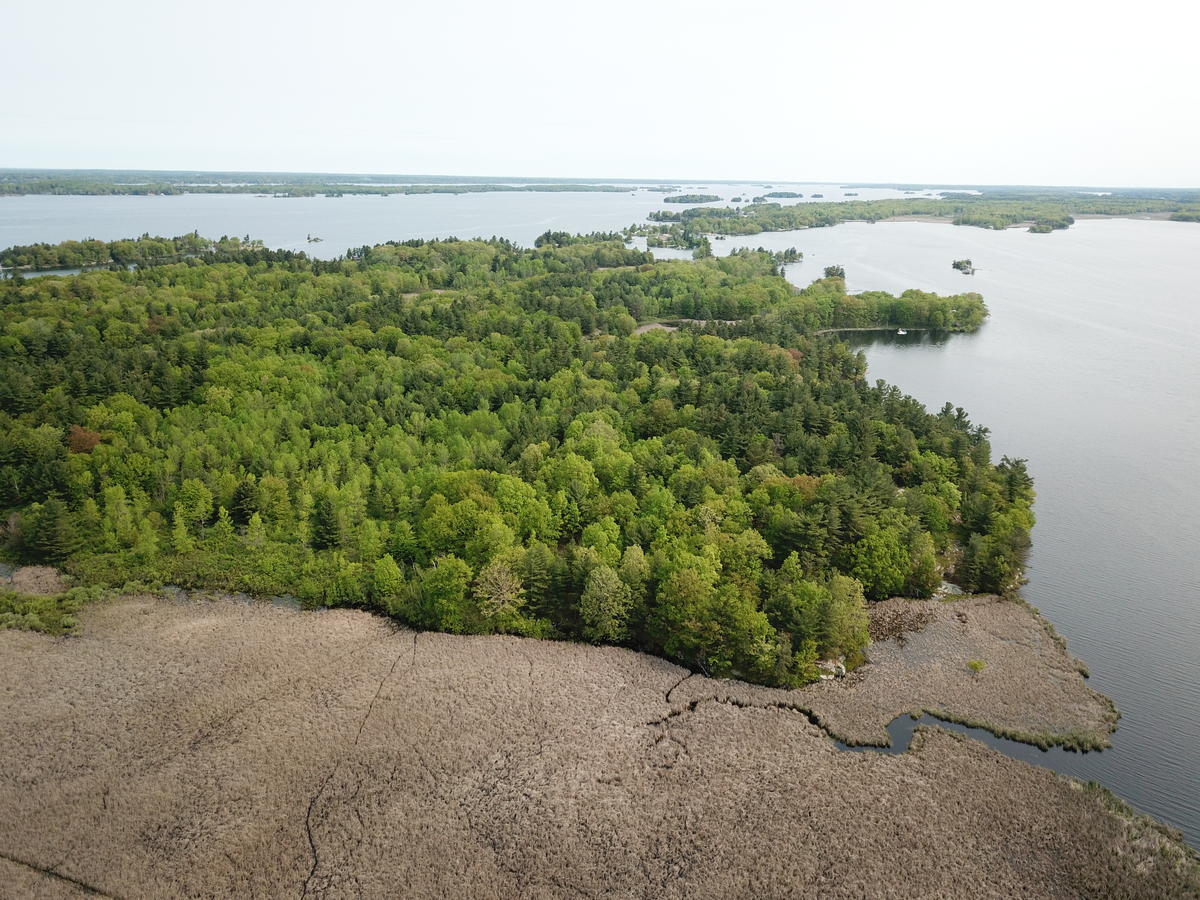Earlier this year, TILT was awarded two grants through the New York State Department of Environmental Conservation (NYSDEC) Water Quality Improvement Program (WQIP) totaling $1.23M for two priority conservation initiatives: Number Nine Island in Goose Bay and Deer Point Island in Lake of the Isles. Through these grants, TILT will be able to preserve nearly 170 acres of forests and wetlands on and around these islands, helping to protect the region’s water quality.
The St. Lawrence River and its tributaries provide drinking water to hundreds of thousands of people across countless municipalities in the US and Canada. As impacts from shoreline development and agriculture continue across the entire Great Lakes basin, there is increased susceptibility for water contamination by nutrient-laden sediments and other harmful pollutants. At the local scale, aside from the risk to safe recreational enjoyment of these waters, this means that municipalities and other public water suppliers would eventually need to implement more robust and costly treatment systems to provide clean, safe, drinking water.
Over the last few decades, water quality in Goose Bay in the Town of Alexandria has been on the decline, likely due to increased nutrient loading associated with waterfront development and agricultural activities in the upper watershed. Most of the land surrounding Goose Bay is composed of very shallow soils, which do not absorb nutrients well and therefore do not properly treat sewage and wastewater. These additional nutrients that are not absorbed into the soil, make their way into open water, causing an explosion of aquatic weed growth like we see now in Goose Bay. Here, invasive weeds are flourishing, hindering boating, swimming, fishing, and dock access. While local citizen groups are working diligently to combat this growth with aquatic herbicides and other removal techniques, these efforts do not address the root of the problem of poor water quality. Excess nutrients can also lead to harmful algal blooms (HABs) in Goose Bay’s shallow, slow-moving and warm water, posing a health threat to humans, pets, and wildlife.
Water quality has also been a longstanding concern facing Lake of the Isles on Wellesley Island. In recent history, the use of phosphate detergents combined with ineffective sewage treatment led to contaminations in this popular recreational destination. Considering its warm temperatures and lack of flow, Lake of the Isles is particularly susceptible to this form of water quality degradation.
To safeguard these waterways, TILT’s WQIP grant will allow the organization to acquire and permanently protect 156± acres and thousands of feet of undeveloped, natural vegetated shoreline and coastal marshland on Number Nine Island in Goose Bay, just upstream from Kring Point State Park. A second WQIP grant will allow for the permanent protection of 12± acres on Deer Point Island directly across the Lake from Dewolf Point State Park. This project would preserve approximately 1,500 feet of intact natural shoreline and about 1,400 feet of marsh frontage near Barnett Creek.
“Save The River is very excited to learn of the award to TILT to purchase these two environmentally sensitive tracts of land,” said John Peach, Executive Director of Save The River. “By conserving these properties, TILT ensures that they remain in their natural vegetated state in perpetuity, free from additional pollutant-sources.”
The economy of the upper St. Lawrence River is vitally dependent on tourism, with the majority of this tourism being based around the region’s water quality, natural aesthetics and healthy ecosystems. At least 10% of visitors to the Thousand Islands come primarily to visit preserves, trails, and conserved open spaces. These visitors are estimated to spend $37.9 million annually in the 1000 Islands region, generating $2.6 million in local tax revenues each year. This means that maintaining a high standard of water quality is absolutely imperative for the region’s economy, especially near tourist attractions like the popular Kring Point and Dewolf Point State Parks that receive a combined total of 75,000 visitors each year! The protection of the riparian vegetation and undeveloped natural shorelines will not only help ensure high water quality but will further bolster tourism.
“2020 is slated to be a busy and exciting year for TILT’s land protection program. The conservation of Number Nine Island and Deer Point Island are major steps toward ensuring the long-term ecological health and recreational quality of Goose Bay and Lake of the Isles,” said Spencer Busler, TILT’s Assistant Director. “We’re grateful that the Environmental Protection Fund and the Water Quality Improvement Program are available to help protect the clean water and open space that we all enjoy."





